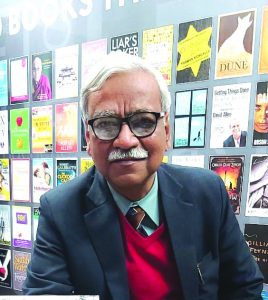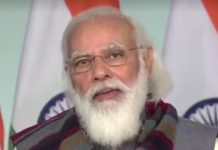 Political biographies are either too dull because of the ragged excavated personal and public life details contained in them or are undiluted eulogies dedicated to the subject of the book. It is therefore rarely that a biography emerges which successfully meshes the private person and his public life with the headlong on rush of critical political players, era defining events and the dilemmas of decision-making. While a few biographies do manage to provide insights on some of these elements, a majority of them are constrained by the sweep of the author’s vision on the scope and character of the book. It either weighs in too heavily on his person or his persona.
Political biographies are either too dull because of the ragged excavated personal and public life details contained in them or are undiluted eulogies dedicated to the subject of the book. It is therefore rarely that a biography emerges which successfully meshes the private person and his public life with the headlong on rush of critical political players, era defining events and the dilemmas of decision-making. While a few biographies do manage to provide insights on some of these elements, a majority of them are constrained by the sweep of the author’s vision on the scope and character of the book. It either weighs in too heavily on his person or his persona.
Ashwini Bhatnagar’s The Lotus Years skillfully skips over these pitfalls and narrates the story of the tumultuous 1980 decade with Rajiv Gandhi at its centre. That the biography employs creative intelligence in its writing is evident from the title of the book itself — The Lotus Years. It is a flirtatious way of locating the Man From The Dynasty via a synonym of his name (the other word in Hindi for Rajiv is Kamal i.e. lotus) to the current political dispensation. The title indeed provokes curiosity and draws the reader to the book at the very first glance.
Bhatnagar was at The Times of India, Lucknow, as a political correspondent between 1980 and 1990, the period of Rajiv Gandhi’s short political life that the book covers. The posting provided him with the opportunity to not only know Rajiv from close quarters but it also gave him a ringside view of the political goings –on in the politically sensitive and critical state of Uttar Pradesh.
He could therefore observe, record and report on the political play which culminated in several critical events at the national level. He was also one–on-one with the key players both in the Congress and in the Opposition. Much of the material of his book comes from this personal access and has largely not been in public domain.
That Bhatnagar has an inimitable style of story-telling, even one as complicated as this one, without being partisan is reflected from the opening chapter of the book itself in which he narrates his first interview with Rajiv Gandhi. The interview was published in The Pioneer and was perhaps among the first ones which was coaxed out of him. The punch line of the interview ‘mummy se puchiye’ clearly delineates what Rajiv was as a political greenhorn and how he went on to leave a legacy that “defines the connected lifestyles we live today and the India that has turned aspirational to its very core.”
In fact, the biography is engagingly written using anecdotes that reel out at an interesting pace to give the reader a 360-degree view on not only Rajiv Gandhi –the man and PM — but also on the entire spectrum of political life during that tumultuous decade.
The first few chapters set the context through very readable descriptions of Rajiv’s personal life during the early years: Sanjay Gandhi’s rise to power and his untimely death in a plane crash, the frostiness between the core members of the family thereafter and the assassination of Indira Gandhi leading to Rajiv assuming full charge of his political inheritance.
The book then details Rajiv’s style of functioning and the resistance to it from veteran Congressmen. The mechanization of many of them to assert their political importance is narrated through several anecdotes. These stories bring to life the motivations of several prominent politicians who did what they did during those years.
The author engages the reader with a host of prominent personalities of that time. They include Amitabh Bachchan, Arun Nehru, Pranab Mukherjee, Vishwanath Pratap Singh, Kamlapati Tripathi, AR Antulay, Veer Bahadur Singh, at al on the Congress side; and Chandra Shekhar, Devi Lal, Lal Krishan Advani, Atal Behari Vajpayee, Charan Singh, HN Bahuguna, etc. from the Opposition.
Fairfax and Bofors feature prominently but here too Bhatnagar has brought in an intriguing twist through a largely unknown fact. Read the pages on sacking of VP Singh from Rajiv’s ministry.
Ashwini sums up Rajiv’s political life thus: “Rajiv had wanted a second chance. He probably deserved a second chance too … he was but a step away from (it) …But politics, it was now certain, did not agree with him. Destiny’s cruel sleight of hand had pushed him into it, and in another cruel twist, took it away fro it in the most definite way. In between, Rajiv was an incandescent flash of energy that propelled India to the very doorstep of the 21st century.”
letters@tehelka.com













